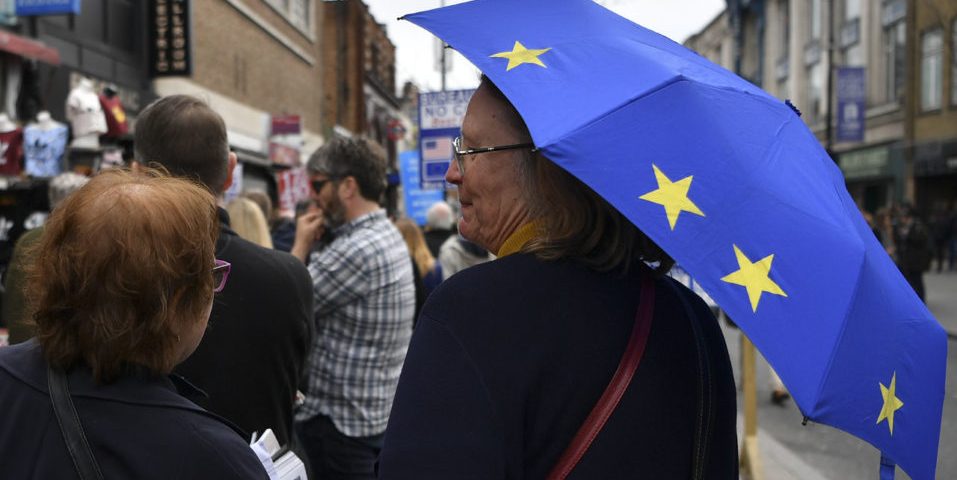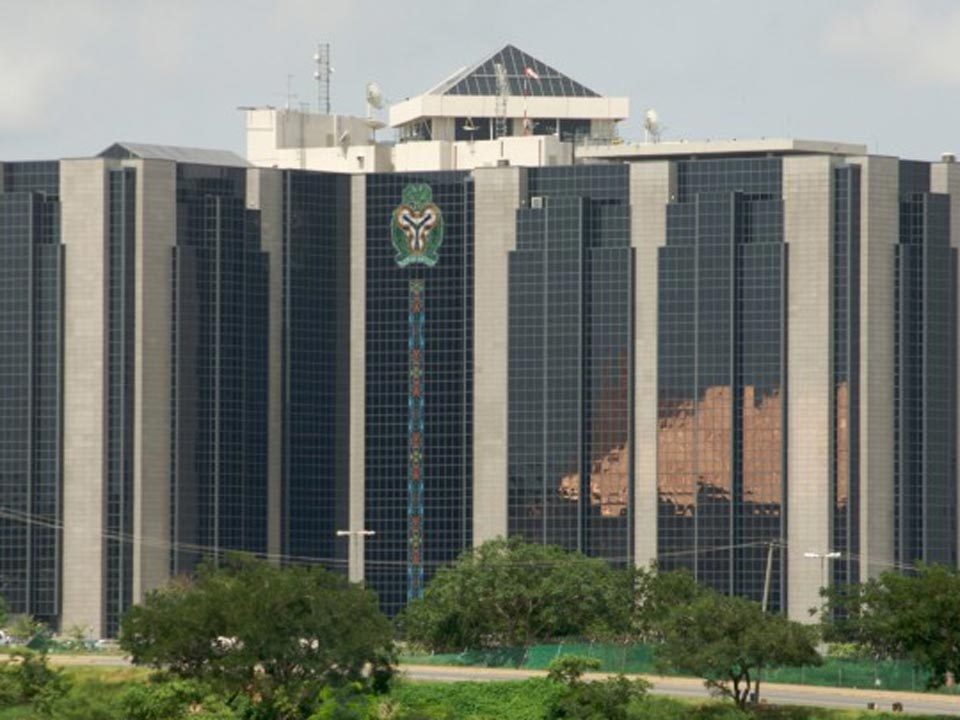World Update: Pound falls as May plans fresh Brexit assault

Nigeria News: Guinness Nigeria posts N3.8b earnings on lower charges
February 5, 2019
Nigeria Update: Stakeholders want retail investors to advantage of low stock price
February 5, 2019World Update: Pound falls as May plans fresh Brexit assault
A woman with an EU-flag-themed umbrella queues with others to enter the venue of a launch event for the People’s Vote campaign in London on April 15, 2018 that is calling for a referendum on the final Brexit deal. A new cross-party campaign for a referendum on Britain's EU departure deal launched on April 15, insisting the British public -- and not just politicians -- should be given a say. / AFP PHOTO / Ben STANSALL
The pound dropped Monday following weak UK construction data and as Prime Minister Theresa May seeks to try and finally unlock the Brexit stalemate.
London’s benchmark FTSE 100 index, featuring large multinationals earning in dollars and euros, climbed to a two-month high above 7,000 points thanks to the weaker pound.
Eurozone stock markets faltered, while Asia mostly advanced.
Oil prices hit the highest levels this year as the crisis in OPEC producer Venezuela fuels concerns over potential tighter crude supplies.
“A minor decline for the pound, one that followed a 10- month low UK construction PMI… allowed the FTSE to hit a fresh two-month high,” noted Connor Campbell, a financial analyst at Spreadex traders.
The IHS Markit/CIPS UK Construction purchasing managers’ index fell to 50.6 in January from 52.8 the previous month.
“Uncertainty about Brexit has snuffed out the recovery in the construction sector,” said Samuel Tombs, chief UK economist at Pantheon Macroeconomics.
“In the unlikely event of a no-deal Brexit, the sector likely will slide into another recession, amid weaker business confidence and tighter credit conditions.
“But provided a deal is signed off, the construction sector likely will enjoy strong growth soon.
“Business investment should rebound later this year, given that firms’ profit margins are relatively healthy and their balance sheets are awash with cash,” Tombs added.
May on Sunday said she would be “armed with a fresh mandate and new ideas” when she next meets European Union negotiators over her Brexit deal.
EU officials have insisted that the deal — rejected by British lawmakers — is not open for renegotiation.
But May wrote in the Sunday Telegraph that she would be “battling for Britain and Northern Ireland” in her efforts to get rid of the agreement’s unpopular “backstop” provision.
The so-called backstop is intended to ensure there is no return to a hard border with Ireland, but Brexit supporters fear it will keep Britain tied to the EU’s customs rules.
Aside from Brexit, markets continued to feast over strong US jobs data published Friday, helping Asian stock markets to gain in thin trade owing to the three-day Lunar New Year break.
Expectations that the Federal Reserve will take its foot off the gas in raising US interest rates — and optimism that China and the United States will eventually hammer out a deal to resolve their long-running trade war — provided support.
The US, the world’s biggest economy, added 304,000 new posts in January, almost double what was expected and the strongest reading for almost a year, while growth in pay held steady above inflation.
All three main indices on Wall Street ended with gains Friday, which filtered through to Asia.
– Key figures around 1200 GMT –
London – FTSE 100: UP 0.3 percent at 7,038.02 points
Frankfurt – DAX 30: DOWN 0.3 percent at 11,150.99
Paris – CAC 40: DOWN 0.5 percent at 4,992.85
EURO STOXX 50: DOWN 0.4 percent at 3,157.44
Tokyo – Nikkei 225: UP 0.5 percent at 29,883.77 (close)
Hong Kong – Hang Seng: UP 0.2 percent at 27,990.21
Shanghai – Composite: Closed for a public holiday
New York – Dow: UP 0.3 percent at 25,063.89 (close)
Pound/dollar: DOWN at $1.3067 from $1.3084 at 2200 GMT Friday
Euro/pound: UP at 87.65 pence from 87.57 pence
Euro/dollar: DOWN at $1.1452 from $1.1459
Dollar/yen: UP at 109.86 yen from 109.51
Oil – Brent Crude: DOWN six cents at $62.69 per barrel
Oil – West Texas Intermediate: DOWN 13 cents at $55.13

